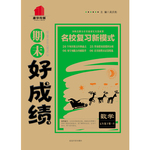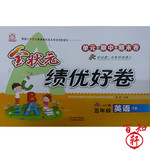
We get so caught up in that that we become lost in the dream itself. Yet we are scared of seeing it realized, of it becoming reality.
A. association B. intention C. fantasy D. attraction
 期末好成绩系列答案
期末好成绩系列答案 99加1领先期末特训卷系列答案
99加1领先期末特训卷系列答案 百强名校期末冲刺100分系列答案
百强名校期末冲刺100分系列答案 好成绩1加1期末冲刺100分系列答案
好成绩1加1期末冲刺100分系列答案 金状元绩优好卷系列答案
金状元绩优好卷系列答案科目:高中英语 来源: 题型:阅读理解
There is, for many of us, a moment in life when we make a choice that changes us forever. This moment marks a turning point, when we realize that the life we're living is not a mirror of who we really are.
For some, the moment comes as a result of something dramatic: the sudden loss of a job, or the death of a loved one. For others, they have to deal with difficult situations, such as financial hardship. In these challenging times, it's more critical(关键时刻的) than ever for us to seize the possibility of positive change. As I travel and talk to people about their lives, I often see a distant, vacant look in their eyes -- a look that says “I’m so busy trying to survive my life that no soul left to live it”.
As a result, we end up feeling lonely. Yet we keep on going the way we've been going. We tolerate high levels of stress at work, take important relationships for granted, or put our health needs on hold. We get so caught up in the details of living that our busyness becomes an excuse from the inner voice that begs us to listen. When you finally pay attention to that little voice and begin to make even small changes, you will slowly improve yourself.
To start positive change, you need the power of your mind. I've come up with a five-step strategy that will help you. You will be able to identify what you want and then go after it. It's easier than you might think.
1. Reset your happiness set point. Don't limit yourself! When I decided that I wanted more control over my life, I set goals in physical, emotional, financial, professional, material, and play. I challenged myself to consider every possible choice. Imagine things you've never believed you could achieve. Don't let your past determine your future.
2. Trust your courage. Too often, when you're first learning to take control of your life, you doubt yourself. It's important to develop a strong connection with your inner guidance system. I've heard many stories about the persistent voice inside your head.
3. Take action. Once you have set goals, adjusted your beliefs, and got ready, you can start making things happen. Again, turn to those people you respect -- the ones achieving what you desire -- for support and guidance. They will both inspire you and give you practical advice on what steps you need to take.
4. Have faith. Believe that the positive energy of grace will support your efforts to improve your life. When you've done all you can, let go and trust that the right result will occur. When we have faith, we give up the need to be in control, and we set ourselves up to actually enjoy the process of change.
5. Be patient. This can be the toughest step. It's not easy to trust that your life will improve in a best way. Remind yourself of the benefits of patience. In my experience, those life changes are always worth the wait.
What does the author intend to say in the second paragraph?
A. The start of some turning points in one’s life is caused by crisis.
B. Loss of a job or the death of a loved one are all dramatic things.
C. No one can live a life without any turning points.
D. No one can predict his future of being good or not.
In the author’s opinion, we should ______________.
A. adjust our beliefs from time to time B. always control ourselves for anything
C. keep on going the way we are going D. seize the challenging times to live an active life
The author suggests that when setting your happiness set points, you should _______.
A. know the limitation of your set point B. build self-confidence without doubt
C. limit your goals in different ways D. consider every possible choice with care
Which of the following is NOT true according to the passage?
A. When you've done all you can, you may believe that the right result will occur.
B. When you set goals, and take action, it is possible to make things happen.
C. When you first learn to take charge of your life, you will always doubt yourself.
D. If things do not happen in a way that is best, patience is always worth the wait.
查看答案和解析>>
科目:高中英语 来源: 题型:阅读理解
Passage Nineteen (TV’s Harmfulness)
Yes, but what did we use to do before there was television? How often we hear statements like this! Television hasn’t been with us all that long, but we are already beginning to forget what the world was like without it. Before we admitted the one-eyed monster into our homes, we never fond it difficult to occupy our spare time. We used to enjoy civilized pleasures. For instance, we used to have hobbies, we used to entertain our friends and be entertained by them, we used to go outside for our amusements to theatres, cinemas, restaurants and sporting events. We even used to read books and listen to music and broadcast talks occasionally. All that belongs to the past. Now all our free time is regulated by the goggle box. We rush home or gulp down our meals to be in time for this or that programme. We have even given up sitting at table and having a leisurely evening meal, exchanging the news of the day. A sandwich and a glass of beer will do – anything, providing it doesn’t interfere with the programme. The monster demands and obtains absolute silence and attention. If any member of the family dares to open his mouth during a programme, he is quickly silenced.
Whole generations are growing up addicted to the telly. Food is left uneaten, homework undone and sleep is lost. The telly is a universal pacifier. It is now standard practice for mother to keep the children quiet by putting them in the living-room and turning on the set. It doesn’t matter that the children will watch rubbishy commercials or spectacles of sadism and violence – so long as they are quiet.
There is a limit to the amount of creative talent available in the world. Every day, television consumes vast quantities of creative work. That is why most of the programmes are so bad: it is impossible to keep pace with the demand and maintain high standards as well. When millions watch the same programmes, the whole world becomes a village, and society is reduced to the conditions which obtain in preliterate communities. We become utterly dependent on the two most primitive media of communication: pictures and the spoken word.
Television encourages passive enjoyment. We become content with second-hand experiences. It is so easy to sit in our armchairs watching others working. Little by little, television cuts us off from the real world. We get so lazy, we choose to spend a fine day in semi-darkness, glued to our sets, rather than go out into the world itself. Television may be s splendid medium of communication, but it prevents us from communicating with each other. We only become aware how totally irrelevant television is to real living when we spend a holiday by the sea or in the mountains, far away from civilization. In quiet, natural surroundings, we quickly discover how little we miss the hypnotic tyranny of King Telly.
1.What is the biggest harm of TV?
A.It deprives people of communication with the real world.
B.People become lazy.
C.People become dependent on second-hand experience.
D.TV consumes a large part of one’s life.
2.In what way can people forget TV?
A.Far away from civilization.
B.To a mountain.
C.By the sea.
D.In quiet natural surroundings.
3.What does a mother usually do to keep her children quiet?
A.Let them watch the set.
B.Put them in the living room.
C.Let them watch the rubbish.
D.Let them alone.
4.What does the first sentence in the first paragraph mean?
A.We found it difficult to occupy our spare time.
B.We become addicted to TV.
C.What we used to do is different from now.
D.We used to enjoy civilized pleasures.
查看答案和解析>>
科目:高中英语 来源:2011海南省海口市高考调研测试英语试卷 题型:阅读理解
"Yes, but what did we use to do before there was television?" How often we hear statements like this! Television hasn't been with us all that long, but we are already beginning to forget what the world was like without it. Before we admitted the "one-eyed monster" into our homes, we never found it difficult to occupy our spare time. We used to enjoy civilised pleasures. For instance, we used to have hobbies, entertain our friends and be entertained by them, go outside for our amusements. We even used to read books and listen to music occasionally. Now all our free time is regulated by the "goggle box". We rush home for our meals to be in time for this or that programme. A sandwich and a glass of beer will do—anything, providing it doesn't interfere with the programme. The monster demands and obtains absolute silence and attention. If any member of the family dares to open his mouth during a programme, he is quickly silenced.
Whole generations are growing up addicted to the television. Food is left uneaten, homework undone and sleep is lost. The television is a universal t hing that makes people calm. It is now standard practice for mother to keep the children quiet by putting them in the living-room and turning on the set. It doesn't matter what the children will watch—so long as they are quiet.
hing that makes people calm. It is now standard practice for mother to keep the children quiet by putting them in the living-room and turning on the set. It doesn't matter what the children will watch—so long as they are quiet.
Television encourages passive enjoyment. We become content with second-hand experiences. It is so easy to sit in our armchairs watching others working. Little by little, television cuts us off from the real world. We get so lazy, we choose to spend a fine day in semi-darkness. Television may be a splendid medium of communication, but it prevents us from communicating with each other. We only become aware how totally irrelevant television is to real living when we spend a holiday by the sea or in the mountains. In quiet, natural surrounding, we quickly discover how little we miss the King television.
【小题1】.
. Through the passage, the writer aims to tell us ________.
A.how television is  damaging our health damaging our health |
| B.how to keep away from watching television |
| C.that television is doing harm to our life |
| D.all of us find it difficult to live without television |
| A.Second-hand experiences provided by television are harmful. |
| B.We can enjoy our life without television. |
| C.Television is a necessary way of communication. |
| D.Television is becoming irreplaceable in our daily life. |
| A.To save more time for housework. |
| B.To help them sleep earlier. |
| C.To keep them quiet. |
| D.To help them learn more knowledge from television. |
| A.television occupies too much of our spare time |
| B.it's easy for us to find some spare time to enjoy the television |
| C.we have less spare time after we have television |
| D.it's difficult to spend our spare time without a television |
查看答案和解析>>
科目:高中英语 来源:2011届江苏省宿豫中学高三第二次模拟英语卷 题型:阅读理解
There is, for many of us, a moment in life when we make a choice that changes us forever. This moment marks a turning point, when we realize that the life we're living is not a mirror of who we really are.
For some, the moment comes as a result of something dramatic: the sudden loss of a job, or the death of a loved one. For others, they have to deal with difficult situations, such as financial hardship. In these challenging times, it's more critical(关键时刻的) than ever for us to seize the possibility of positive change. As I travel and talk to people about their lives, I often see a distant, vacant look in their eyes -- a look that says “I’m so busy trying to survive my life that no soul left to live it”.
As a result, we end up feeling lonely. Yet we keep on going the way we've been going. We tolerate high levels of stress at work, take important relationships for granted, or put our health needs on hold. We get so caught up in the details of living that our busyness becomes an excuse from the inner voice that begs us to listen. When you finally pay attention to that little voice and begin to make even small changes, you will slowly improve yourself.
To start positive change, you need the power of your mind. I've come up with a five-step strategy that will help you. You will be able to identify what you want and then go after it. It's easier than you might think.
1. Reset your happiness set point. Don't limit yourself! When I decided that I wanted more control over my life, I set goals in physical, emotional, financial, professional, material, and play. I challenged myself to consider every possible choice. Imagine things you've never believed you could achieve. Don't let your past determine your future.
2. Trust your courage. Too often, when you're first learning to take control of your life, you doubt yourself. It's important to develop a strong connection with your inner guidance system. I've heard many stories about the persistent voice inside your head.
3. Take action. Once you have set goals, adjusted your beliefs, and got ready, you can start making things happen. Again, turn to those people you respect -- the ones achieving what you desire -- for support and guidance. They will both inspire you and give you practical advice on what steps you need to take.
4. Have faith. Believe that the positive energy of grace will support your efforts to improve your life. When you've done all you can, let go and trust that the right result will occur. When we have faith, we give up the need to be in control, and we set ourselves up to actually enjoy the process of change.
5. Be patient. This can be the toughest step. It's not easy to trust that your life will improve in a best way. Remind yourself of the benefits of patience. In my experience, those life changes are always worth the wait.
【小题1】What does the author intend to say in the second paragraph?
| A.The start of some turning points in one’s life is caused by crisis. |
| B.Loss of a job or the death of a loved one are all dramatic things. |
| C.No one can live a life without any turning points. |
| D.No one can predict his future of being good or not. |
| A.adjust our beliefs from time to time | B.always control ourselves for anything |
| C.keep on going the way we are going | D.seize the challenging times to live an active life |
| A.know the limitation of your set point | B.build self-confidence without doubt |
| C.limit your goals in different ways | D.consider every possible choice with care |
| A.When you've done all you can, you may believe that the right result will occur. |
| B.When you set goals, and take action, it is possible to make things happen. |
| C.When you first learn to take charge of your life, you will always doubt yourself. |
| D.If things do not happen in a way that is best, patience is always worth the wait. |
查看答案和解析>>
科目:高中英语 来源:2010届高考二轮复习英语阅读理解二十篇精读 题型:阅读理解
Passage Nineteen (TV’s Harmfulness)
Yes, but what did we use to do before there was television? How often we hear statements like this! Television hasn’t been with us all that long, but we are already beginning to forget what the world was like without it. Before we admitted the one-eyed monster into our homes, we never fond it difficult to occupy our spare time. We used to enjoy civilized pleasures. For instance, we used to have hobbies, we used to entertain our friends and be entertained by them, we used to go outside for our amusements to theatres, cinemas, restaurants and sporting events. We even used to read books and listen to music and broadcast talks occasionally. All that belongs to the past. Now all our free time is regulated by the goggle box. We rush home or gulp down our meals to be in time for this or that programme. We have even given up sitting at table and having a leisurely evening meal, exchanging the news of the day. A sandwich and a glass of beer will do – anything, providing it doesn’t interfere with the programme. The monster demands and obtains absolute silence and attention. If any member of the family dares to open his mouth during a programme, he is quickly silenced.
Whole generations are growing up addicted to the telly. Food is left uneaten, homework undone and sleep is lost. The telly is a universal pacifier. It is now standard practice for mother to keep the children quiet by putting them in the living-room and turning on the set. It doesn’t matter that the children will watch rubbishy commercials or spectacles of sadism and violence – so long as they are quiet.
There is a limit to the amount of creative talent available in the world. Every day, television consumes vast quantities of creative work. That is why most of the programmes are so bad: it is impossible to keep pace with the demand and maintain high standards as well. When millions watch the same programmes, the whole world becomes a village, and society is reduced to the conditions which obtain in preliterate communities. We become utterly dependent on the two most primitive media of communication: pictures and the spoken word.
Television encourages passive enjoyment. We become content with second-hand experiences. It is so easy to sit in our armchairs watching others working. Little by little, television cuts us off from the real world. We get so lazy, we choose to spend a fine day in semi-darkness, glued to our sets, rather than go out into the world itself. Television may be s splendid medium of communication, but it prevents us from communicating with each other. We only become aware how totally irrelevant television is to real living when we spend a holiday by the sea or in the mountains, far away from civilization. In quiet, natural surroundings, we quickly discover how little we miss the hypnotic tyranny of King Telly.
1.What is the biggest harm of TV?
A.It deprives people of communication with the real world.
B.People become lazy.
C.People become dependent on second-hand experience.
D.TV consumes a large part of one’s life.
2.In what way can people forget TV?
A.Far away from civilization.
B.To a mountain.
C.By the sea.
D.In quiet natural surroundings.
3.What does a mother usually do to keep her children quiet?
A.Let them watch the set.
B.Put them in the living room.
C.Let them watch the rubbish.
D.Let them alone.
4.What does the first sentence in the first paragraph mean?
A.We found it difficult to occupy our spare time.
B.We become addicted to TV.
C.What we used to do is different from now.
D.We used to enjoy civilized pleasures.
查看答案和解析>>
湖北省互联网违法和不良信息举报平台 | 网上有害信息举报专区 | 电信诈骗举报专区 | 涉历史虚无主义有害信息举报专区 | 涉企侵权举报专区
违法和不良信息举报电话:027-86699610 举报邮箱:58377363@163.com